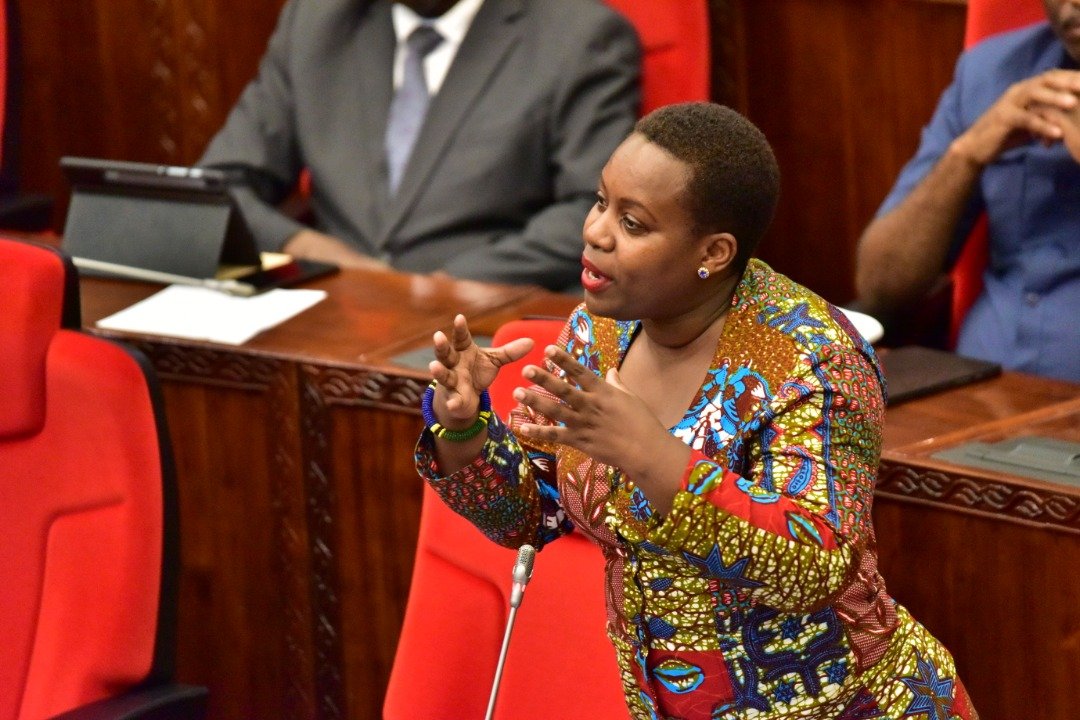Tanzanian MP calls for a Commonwealth commitment to school meals
As over 700 members of parliament from 180 Commonwealth legislatures prepare to meet in Ghana, Tanzanian MP Neema Lugangira sets out why Commonwealth parliamentarians should prioritise school meals.
At the peak of the COVID-19 pandemic, governments in more than 190 countries closed educational institutions. This has had devastating effects on children’s learning and development, exacerbating the existing learning crisis, especially for children in the world’s poorest communities.
To make matters worse, it was not just children’s learning that was affected when schools were shut down. Critical school-based services such as health screenings, immunisation and school meals were also disrupted. The absence of school meals shone a spotlight on the vital importance of the food that 388 million children were receiving every day at school until COVID robbed them of that opportunity.
However, we must also recognise the unfortunate fact that in most African countries, a larger percentage of schools do not have school meal programs and where schools do, not all children are enrolled on the program. This contributes to high absenteeism and ultimately poor academic performance.
Creation of the School Meals Coalition
In response to this crisis a group of 54 countries, representing all economic levels together with 60 partners, including UN agencies, academic partners, and civil society organisations, launched the School Meals Coalition.
As of September, 90 countries have joined the Coalition and 30 million more children are currently receiving a meal at school compared to early 2020. This is a remarkable achievement and one that points to the power of partnerships in mobilising collective efforts for pandemic recovery to accelerate progress and for systems transformation.
I was pleased to play my part in encouraging Tanzania to join the Coalition, which President Samia Suluhu Hassan announced in September 2022.
Commonwealth commitment
Commonwealth member states have been at the forefront of the push to scale up and improve school meals. And India was an early adopter when in 1925 the state of Tamil Nadu created a mid-day meal programme. Today India’s central government provides 120 million children in over 1.27 million schools with a daily meal, making it the largest school meal programme in the world.
Meanwhile, last month the largest school meals programme in Africa was launched by the Government of Kenya in Nairobi. The programme provides 400,000 daily lunches for children in 225 primary schools and early childhood development centres across the Kenyan capital. Speaking at the launch of the programme President William Ruto committed to extend the existing national feeding programme from 1.6 million children to 4 million saying, “We must eliminate the shame of hunger in our country”.
On the other side of the world, New Zealand reached a major milestone after the country delivered 100 million free and healthy school meals as part of its healthy school lunches programme. Canada is taking its first steps with plans to roll out the country’s first-ever national school food policy to increase access to nutritious meals for children at school.
These examples from India, Kenya, Canada, and New Zealand are just a snapshot of the growing support for and implementation of school meals across the 22 Commonwealth member states that have joined the School Meals Coalition.
More to be done
There is urgent work to be done in other Commonwealth member states where school feeding programmes could make a vital contribution to tackle the triple crisis of less learning, more poverty and worsening nutrition.
An analysis undertaken by the World Food Programme identified that 16 of the 60 countries which should prioritise school meals to population affected by acute hunger and malnutrition are Commonwealth member states.
Meanwhile, some Commonwealth countries have school meal programmes, but do not reach enough children. Of the 31 Commonwealth countries with school meal programmes for which data exists, 19 provide meals to less than half the children enrolled in primary school and 11 provide meals to less than a fifth.
Through the Agri Thamani Foundation, which I founded, we have partnered with Harvest Plus to launch the first of its kind “Scalable-School Meals Programme” in Bukoba and Missenyi districts of Kagera region, aiming to reach 150,000 children. Such steps are needed, and it is hoped that more interventions such as these will follow in various parts of all Commonwealth countries without national school feeding programmes.
Proven and scalable
More than 40 million out of school children live in two Commonwealth member states, Nigeria, and Pakistan both of which have high rates of child stunting and poverty.
School meals can contribute to addressing such challenges, as well as improve school enrolment, children’s nutritional intake for good health, and support to local famers by guaranteeing a market for their produce. Unlike other solutions to complex challenges, school meals are proven to be technically feasible, cost-effective, and possible to deliver at scale.
This is why I am backing the School Meals Coalition’s aim to ensure that every child can receive a healthy, nutritious meal in school by 2030. The combination of an ambitious goal and the urgency for all countries to adopt school meals to address numerous challenges will demand an unprecedented mobilisation of political will and practical action.
I hope this essential tool will be received enthusiastically by my parliamentary peers from across the Commonwealth, and that we will commit to creating a Commonwealth of nations free from hunger and ignorance.
This article was originally publised by the School Meals Coalition on 29 September 2023.


